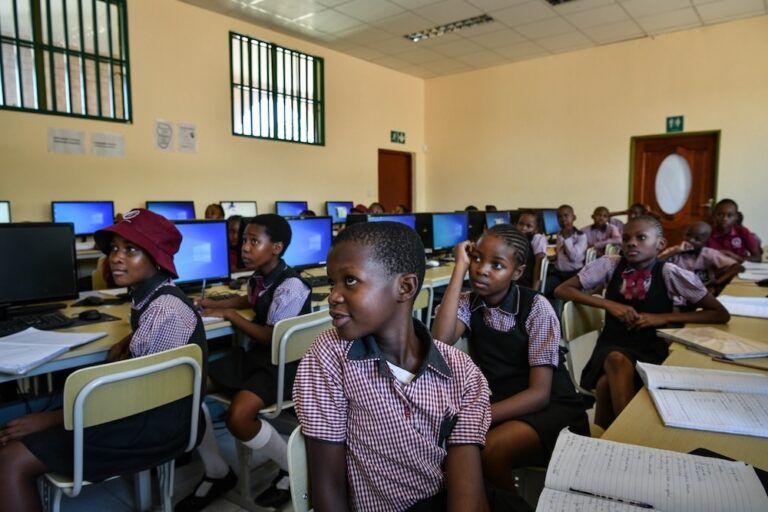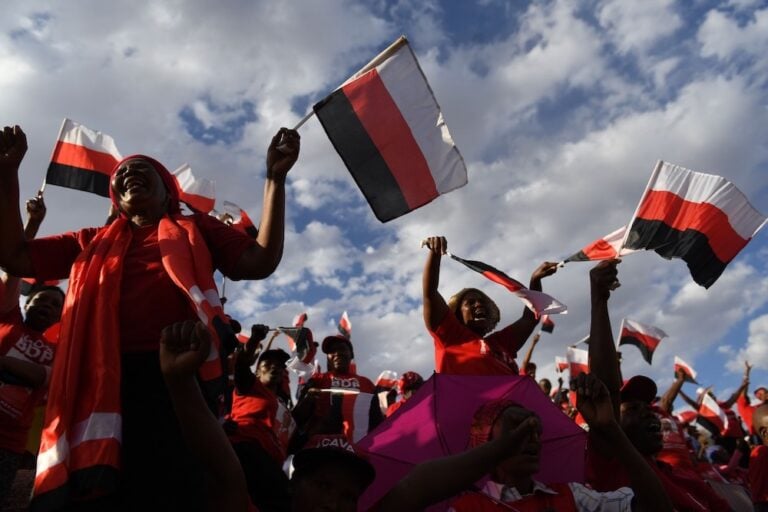(MISA/IFEX) – The following is a MISA statement: The Media Institute of Southern Africa condemns the conduct of the President and government of Botswana in summarily declaring an Australian academic, political scientist Professor Kenneth Good, 72, a prohibited immigrant and ordering his deportation from the country with 48 hours notice. Good, who has been lecturing […]
(MISA/IFEX) – The following is a MISA statement:
The Media Institute of Southern Africa condemns the conduct of the President and government of Botswana in summarily declaring an Australian academic, political scientist Professor Kenneth Good, 72, a prohibited immigrant and ordering his deportation from the country with 48 hours notice.
Good, who has been lecturing at the University of Botswana for the past 15 years after he had been deported from Ian Smith’s Rhodesia some years earlier, is the joint author of a highly critical paper on what he termed the undemocratic presidential succession processes in Botswana.
On February 18, three officials, one carrying handcuffs, called at his home and said that President Festus Mogae had declared him a prohibited immigrant and that he had 48 hours in which to leave Botswana.
Good challenged the order in the High Court the following day and, after several days of legal argument, High Court acting Judge Stanley Sapire ruled that he be allowed to stay in Botswana to enable him to challenge the constitutionality of the deportation order.
No reason for the order has been given – the state’s lawyers say it is within the prerogative of the president to declare by presidential decree a foreigner in Botswana to be a prohibited immigrant without giving reasons.
Consequently, it has been presumed that the president was acting in accordance with Section 93 of the Penal Code which states that a person publicly using insulting language in relation to the president or a member of the National Assembly commits a crime. In the paper both the president and the Vice-President, Lieut-General Ian Khama, were strongly criticised.
Members of MISA were part of an international and regional delegation which spent nearly two hours with President Mogae and some of his senior officials in November 2003 calling for the scrapping of laws such as those in the Penal Code – which fall in the category of notorious “insult laws”. MISA and many international organisations are engaged in a campaign for the elimination of these laws – ostensibly intended to protect the dignity and reputation of the president and government members but in reality instruments of censorship designed to prevent public scrutiny of government conduct and to obstruct the public’s right to know.
MISA points out that, in the event, the serving of the order on Professor Good did not achieve its aim of preventing the publication of his critique of presidential and vice-presidential conduct. On February 23, Good gave a university lecture on the issue as planned. Indeed, even if the officials had succeeded in deporting him before then, the criticism would nevertheless have been published both outside and inside Botswana.
The most disquieting element of this disgraceful act is that it has destroyed Botswana’s reputation as a democratic country tolerant of dissent and as an upholder of freedom of expression and media freedoms, one of the few countries in Africa which has achieved this admirable status. This reputation had been painstakingly built up by the previous administrations since independence in 1966.
MISA calls on the president and government to withdraw the prohibited immigrant order and restore Professor Good’s civil rights. If it is believed that the reputations of the president and Khama have been harmed, they should seek redress through civil action in the courts. MISA also calls for a review of Botswana’s legislation with a view to eliminating that which can be used to restrict freedom of expression.


